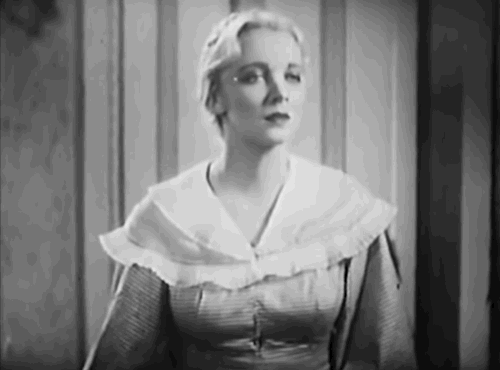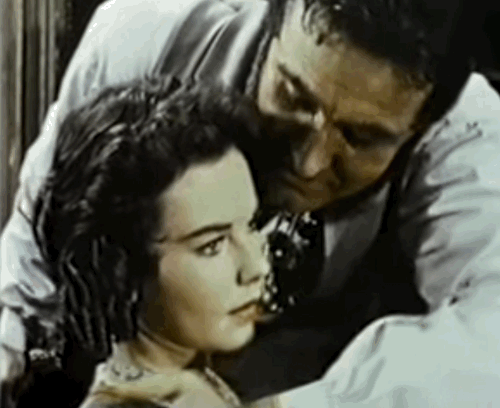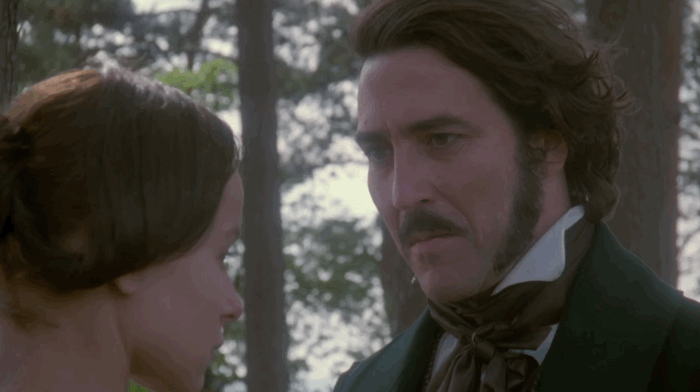I’ve seen or heard perhaps every available Jane Eyre adaptation there is. The selection isn’t limited to TV and film interpretations; I’ve listened to podcast and radio dramas, watched the Broadway musical and nearly memorized the accompanying soundtrack, and even seen American Ballet Theatre’s Misty Copeland and Cory Stearns dance Jane and Rochester in Cathy Marston’s 2019 ballet. Jane Eyre has been acted, spoken, sung, and danced more than any text. Just when I think I’ve seen it all, I’m struck anew by the way different media can move an audience and breath new life into the source material.
Devised by Sally Cookson (alongside the actors themselves), National Theatre’s Jane Eyre does it all at once.
The play is sung. It’s not a musical by any means, but the gorgeous live score holds the narrative together in addition to defining an essential but forgotten character: Bertha Mason. Instead of speaking, Bertha travels through the story singing haunting tunes lifted directly from the book (“my love has sworn with sealing kiss/for me to live, to die”) and from modern music (including “Mad About the Boy” and Gnarls Barkley’s “Crazy”). The character, played by superb vocalist Melanie Marshall, is accompanied by a band that sits directly on stage without distracting the audience. Music gives voice to Bertha and paces the production, providing meaningful transitions and weaving scenes together.
The adaptation is also danced—or rather, choreographed. Bodies move across the set with intention. Characters’ positions on stage are always purposeful, aided by a sparse but meaning-laden jungle gym of a set that doubles as inside and outside. Without the choreography nothing about the set resembles a charity school or an English manor house, but with and through it the audience is enlisted in the imaginative process of constructing the environments the structure evokes. It works so well that a set made of nothing but ladders, ramps, and wooden beams feels quite material. Even though no space is ever one “place” from the novel, any viewer familiar with the book always has a sense of where the characters are.
This mesh of music and choreographed movement is not just a highbrow artistic addition to the story; it serves the purpose of showing without telling. The audience observes through sound and movement what Jane would normally say directly (and wordily) in the book’s first-person narrative. The play’s transitions provide essential information: from a distance, Rochester curiously watches Jane pace the gardens. The characters rearrange themselves and all of a sudden Jane is the one spying as Rochester sits in pensively and shares a tender moment with his dog. In a span of a minute, the audience learns at least three things: that Jane is restless beneath her modest veneer, that Rochester is a wounded man, and that they’re both captivated by the other. In the novel, these facts are revealed through dense narration; here, those parts of the book are captured in transition. The National Theatre adaptation also plays with perspective. Sometimes the audience sits with Jane in what feels like the first-person perspective as the small ensemble of actors doubles as her inner voice—a choice that adds at first to the humor and later to dramatic tension. At other times, the choreography and lighting (and, if you’re watching online, the camerawork) draw the viewer to Rochester. Since I watched the play via the National Theatre’s streaming service, I can’t speak to whether a live audience might feel overwhelmed by the whole thing, but from home I appreciated the way Cookson balances several moving parts to get at the emotional core of the story.
And finally, of course, the play is acted. I wasn’t prepared to like Madeleine Worrell as Jane or Felix Hayes as Rochester, but I was happily converted. Worrell’s Jane isn’t cool, calm, and collected like other portrayals that have graced the film and TV screen. She plays the character with a physicality befitting the stage, making clear that Jane’s emotions are always boiling just beneath the surface, or close to brimming over. Jane’s declaration during the proposal scene is explosive, with Jane and Rochester duking it out in high volume. If you prefer the more subdued approaches of Zelah Clarke or Sorcha Cusack, this adaptation—especially the proposal—isn’t for you, but the play leans into the idea of Jane and Rochester as sparring partners. Felix Hayes as a disheveled Rochester is equal parts gloomy, funny, incisive, and passionate. While his bass voice lends itself to the character’s high station and big personality, his eyes often express Rochester’s softness. The recording allows us to see the actors’ expressions up close in a way live stage would not, revealing the subtleties of Hayes’s performance.
The play isn’t without its flaws, and its reception among Jane Eyre purists depends on the viewer’s willingness to embrace Cook’s minimalism and her innovations in producing the story for the stage. Interesting artistic choices include the use of the small ensemble cast. With the exception of Worrell, everyone plays more than one supporting character, signaled through minor wardrobe changes. Figures like St. John, Mr. Brocklehurst, and Mrs. Fairfax get short shrift as a result. In a two-hour adaptation, Cookson’s choice to merely sketch the supporting force beyond Jane and Rochester is less about abbreviation and more an interpretive strategy. This production is about one person: Jane Eyre. It is, in Cookson’s words, a “life story” that emphasizes Jane’s relationship to herself (and arguably the mad woman in the attic, whose imbrication with Jane the play accentuates). If the play feels stripped down and informal, it’s because it is. But it’s also a case study in striking that delicate balance between modernization and keeping the “spirit” of the original. Cookson manages to stay faithful to the source material and accentuate its core themes while bypassing much of the novel’s wordiness and victorian dressing. Dialogue from the book is truncated to reveal Jane’s bite, Rochester’s abruptness, and Brontë’s humor. And Cookson has a thoughtful eye for visual symbolism (pay attention to the elevation changes in the proposal scene!).
On paper, National Theatre’s Jane Eyre sounds a bit crazy. Supporting actors playing three characters? Gnarls Barkley playing at Thornfield? A human portraying Pilot the dog? It should be a recipe for disaster. But this production not only works; it offers what might be the most complete adaptation of the novel I’ve encountered so far.
This is the part where Jane Eyre enthusiasts pause skeptically. I’ve already said in previous posts that there is no “definitive” Jane Eyre out there in the world (at least not in my opinion). It’s quite a statement to name a stage play the “best” adaptation of the novel, especially given how difficult it is to compare with big budget, full-length TV and film adaptations. But taken in balance, National Theatre’s Jane Eyre is the most satisfying in its context—which is theater. As a director, Cookson makes the right decisions with everything at her disposal, and her leads execute her vision. Jane Eyre pulls artfully from the well of source material, reminding the viewer that the well is indeed still full and fresh. Cookson’s conceptualization is provoking, and during the book’s core scenes she calls in music, choreography, and good acting to move the viewer and draw them into the world of the narrative. Did it have everything? Perhaps. But National Theatre’s Jane Eyre had everything it needed.


























